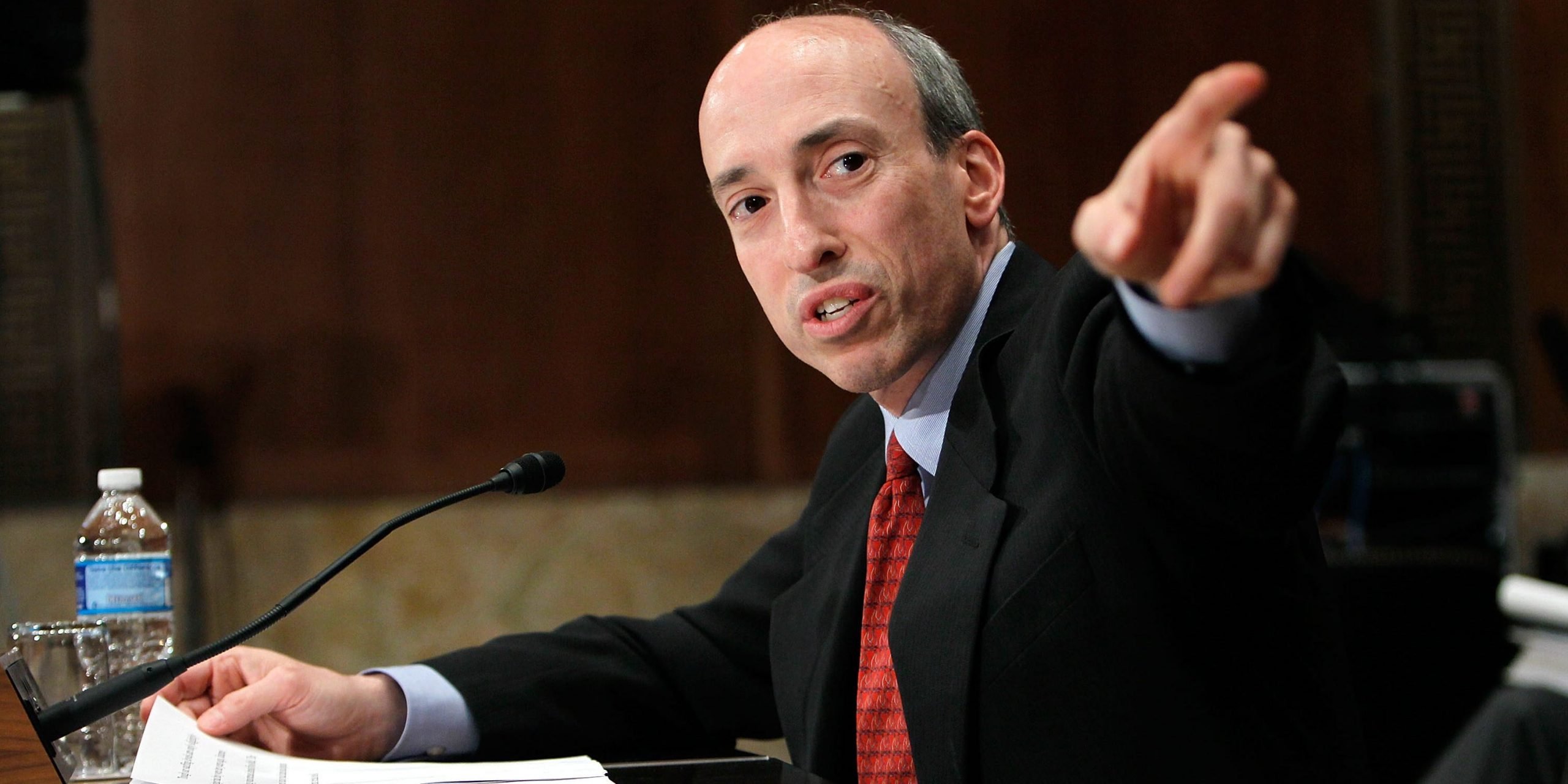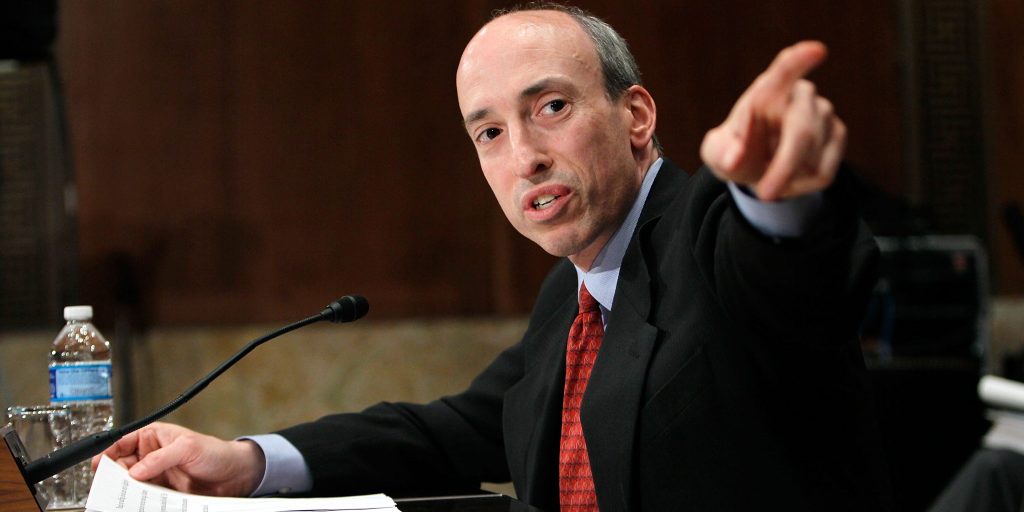
Alex Wong/Getty Images
- The holy grail of bitcoin investment vehicles is a physically backed exchange-traded fund, regulated like a normal ETF under a 1933 law.
- But on Tuesday, SEC Chair Gary Gensler said in a speech that he would be open to approving a bitcoin-futures ETF under the stricter 1940 law governing mutual funds.
- The revelation rankled some fund managers, who complained that futures ETFs have put up a worse performance while being more expensive.
- Sign up here for our daily newsletter, 10 Things Before the Opening Bell.
Some bitcoin ETF hopefuls were left disappointed on Tuesday after SEC Chair Gary Gensler signaled he would be open to bitcoin funds coming to market only under certain conditions, according to a Bloomberg report.
The holy grail of bitcoin investment vehicles is a physically backed exchange-traded fund, regulated like a normal ETF under a 1933 law. Citing market manipulation concerns, the SEC so far has been loath to greenlight the more than a dozen pending bitcoin ETF applications – some backed by physical bitcoin, others by bitcoin futures.
But on Tuesday, Gensler said in a speech that he would be open to approving a bitcoin-futures ETF under the stricter 1940 law governing mutual funds – a revelation that rankled some fund managers.
"We see bitcoin futures-based funds as inferior products," Matthew Sigel, head of digital assets research at VanEck, told Bloomberg, arguing bitcoin-futures ETFs have lagged physical bitcoin on price while being more expensive. VanEck was one of the first applicants for a bitcoin ETF.
"What the SEC seems to be doing is pushing individual investors into higher-risk, lower quality products to get their Bitcoin exposure instead of sticking with the tried-and-true ETF wrapper," he added.
In an earlier Bloomberg interview, David Grim, a partner at Stradley Ronon who previously led the SEC's investment management division, said that the added restrictions could discourage some fund issuers.
"It comes with costs," said Grim. "Depending on your sort of business model and your financing, maybe that's too much or that's not what you want to do."
Others were a bit more sanguine, describing Gensler's move as a "stepping stone" toward a physically backed bitcoin ETF. As Insider has previously reported, the SEC may be wary of rushing to approval for fear of opening the floodgates to a wave of ETF applications. Going slow could prevent the worst excesses of such a wave.
But James Seyffart, ETF analyst at Bloomberg Intelligence, told Bloomberg that Gensler's idea of only approving a bitcoin-futures ETF was hard to square with his market manipulation worries.
"In my mind, it doesn't make much of a difference because if you truly believe Bitcoin is manipulated, Bitcoin futures are going to be affected by said manipulation of the underlying market," he said.
